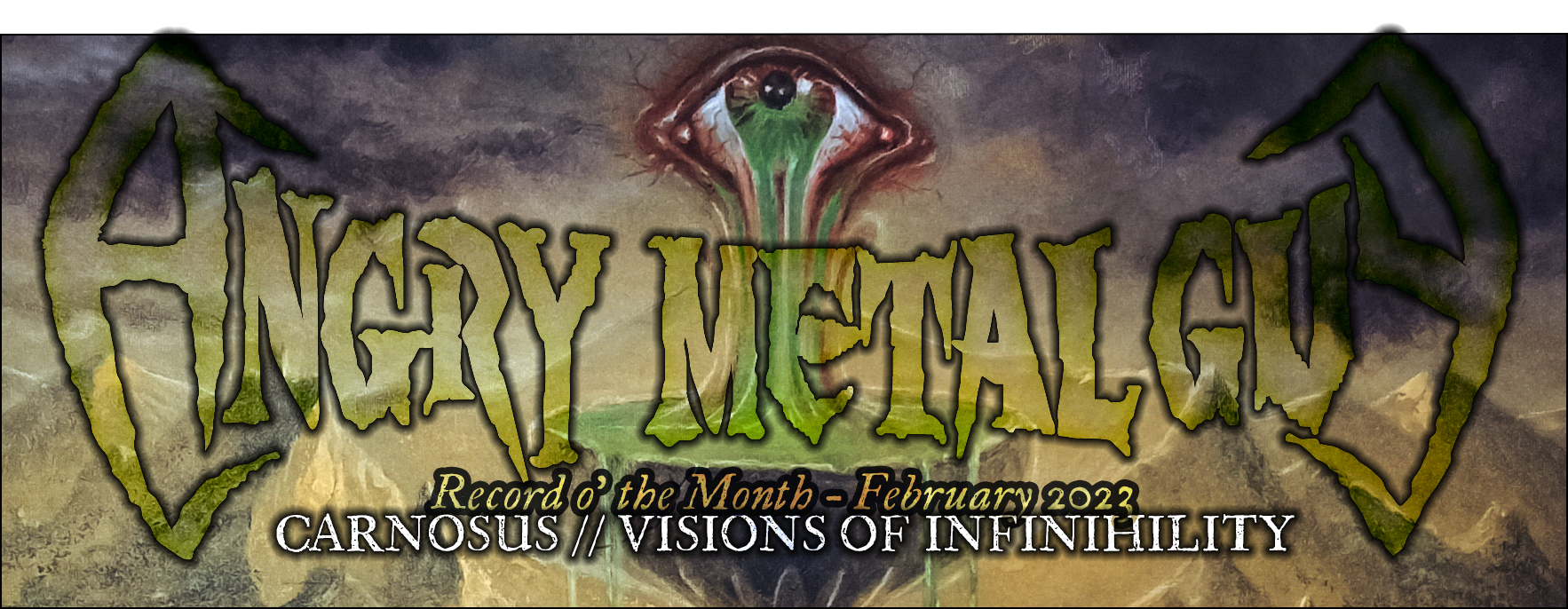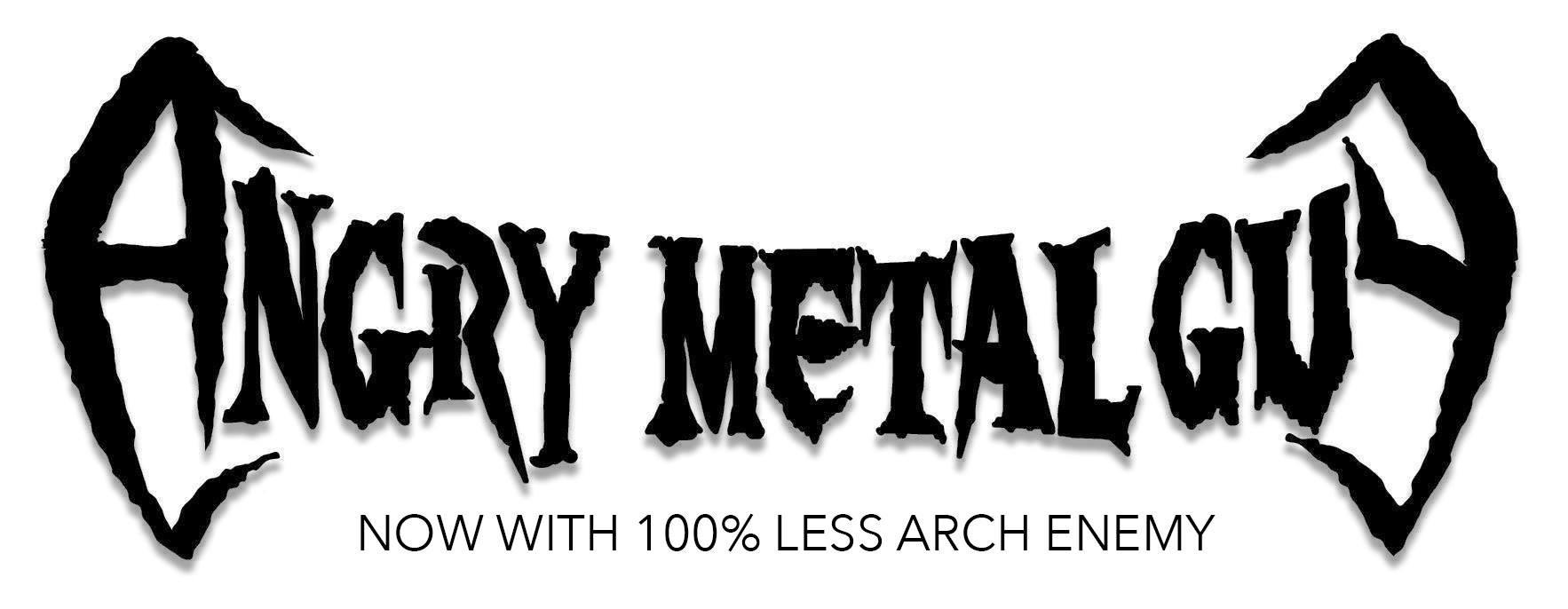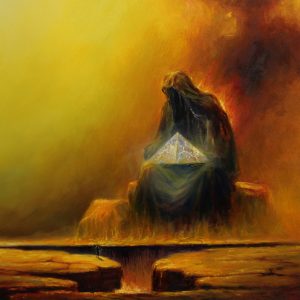 Mental health is one of the most important subjects for discussion in our time, and yet so few of us commit to a respectful approach to the topic. Instead, we often resort to stereotypes and preconceptions that completely misrepresent what mental illness is. As someone who suffers from severe ADHD and chronic depression, and more importantly as someone with immediate family members and close friends suffering from a wide array of conditions ranging from paranoid personality disorder, panic and anxiety disorders, narcissistic personality disorder, etc., the subject bears great weight not only on how I see the world and interact with its inhabitants, but also on how I survive. It seems that music holds a special place for many, like myself, who feel they can’t always safely express concerns about their own mental health. Music functions both as a creative outlet and as a method of processing what we feel, occasionally to the point that it heals. Furthermore, music offers a powerful community simply by existing, and metal, I believe, especially so. Therefore, Grymm, Master of Muppets and I reached out to a few artists whose product takes a hard look at mental health and its relationship with music. First up is an interview with ALN of Mizmor.
Mental health is one of the most important subjects for discussion in our time, and yet so few of us commit to a respectful approach to the topic. Instead, we often resort to stereotypes and preconceptions that completely misrepresent what mental illness is. As someone who suffers from severe ADHD and chronic depression, and more importantly as someone with immediate family members and close friends suffering from a wide array of conditions ranging from paranoid personality disorder, panic and anxiety disorders, narcissistic personality disorder, etc., the subject bears great weight not only on how I see the world and interact with its inhabitants, but also on how I survive. It seems that music holds a special place for many, like myself, who feel they can’t always safely express concerns about their own mental health. Music functions both as a creative outlet and as a method of processing what we feel, occasionally to the point that it heals. Furthermore, music offers a powerful community simply by existing, and metal, I believe, especially so. Therefore, Grymm, Master of Muppets and I reached out to a few artists whose product takes a hard look at mental health and its relationship with music. First up is an interview with ALN of Mizmor.
TheKenWord: First off, allow me to thank you for agreeing to participate in this endeavor of ours. We believe that mental health awareness as a concept gets a bad rap even in this massively interconnected society we live in, but metal (usually) doesn’t give a care about what society likes, so it openly discusses mental health issues and challenges quite often. The challenge is doing so with respect and with some level of sincerity. Your music in particular checks all the right boxes in this regard. What brought about your musical exploration of personal challenges or experiences in this vein?
ALN: Thanks for the opportunity. I think mental health is an important issue and I’m happy to contribute to the conversation. Since learning to play instruments as a kid, I have always used music as an outlet for my melancholy. When I was younger, a specific theme or purpose was much less tangible, but still music (both as a listener and as an artist) has always been a form of release and comfort to me. Even before undergoing any big, painful life events, I was drawn to sadder music. With a few exceptions, I’ve never really enjoyed overtly happy sounding music. My experience has always been one of music being therapeutic (typically when of a melancholic or at least contemplative nature). I’ve written, performed, and recorded full solo albums since I was in sixth grade. I’ve just always been drawn to creating art and music. Gradually over the years my music got heavier, both sonically and thematically. Finally, in my early twenties, I had an experience in my life that was so painful it rocked the foundation of my entire being and worldview and I needed to undertake a more complete, purposeful, and conceptual approach to music making. This was when Mizmor was incepted.
I wrote an album in the black metal/doom metal style that was specifically about my struggle to keep faith as a Christian. I hesitate to the use the word trauma, because that is more a medical term that refers to more extreme situations, often involving violence and abuse, physical and/or sexual, among other events (that I would never equate my experience to out of respect); but if there is an accepted spectrum of trauma that includes not only these PTSD-inducing, violent circumstances but also less severe, major life events that still really fuck a person up and take years to recover from emotionally, I would certainly say that this minor trauma directly brought about my musical exploration of specific personal challenges and experiences. I already was naturally inclined in this way (due to depression, anxiety, and obsessive thinking), but I definitely had a single experience that hurt so badly and left me so lost and broken that it took years to recover from, and I used my music in a very specific way as therapy, letting out my emotions, identifying them, working through them, and eventually experiencing healing from them.
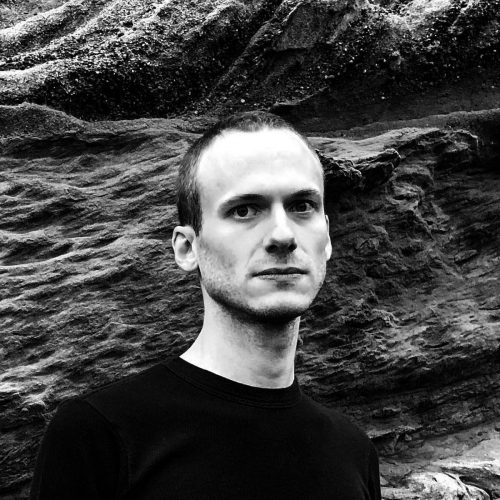
To be specific, the personal experience I am talking about was my childhood indoctrination into Christianity and the ineffable degree of disappointment, bitterness, confusion, rage, and depression that halted my life when I had a paradigm shift as an adult that lead me to no longer believe. I was completely heartbroken as I had, in my mind, lost my dearest loved one and closest friend in my (illusory) relationship with the living Jesus Christ. It left me not only with terrible, long lasting depression, but also completely empty and confused in terms of my entire worldview. I felt I knew nothing, had nothing, was nothing. It was incredibly hard to change the way I thought as an adult about the universe and everything in it from what I had been fed and accepted as true as a child (as early as infancy). 8 years later I am still healing and telling the story. I don’t expect everyone to understand, but just listen to Mizmor if you want a window into how severe a situation this was/is for me.
TheKenWord: Some bands tend to use mental illness as an overarching theme in their music, but yours feels a lot more personal, intimate actually. What is your process for expressing this level of intimacy?
ALN: I think mental illness is an obvious overarching theme for metal music. I mean, clearly we are all suffering on some level (I don’t think many folks making metal are unfamiliar with depression and anxiety, for example; suffering is intrinsic of the genre). In my music, I seek to be honest and vulnerable. To some degree, you can hear this simply in the nature of the performances. But I didn’t always want the lyrical content to be so knowable, that’s a newer feature. As my life and struggle have evolved, so the project has. Now that I have reached a place where I feel some peace and clarity about my journey and my ideas about the universe, I feel I can be more open about my experience. Not only is the slow shaping of this inner confidence important in that regard, but it’s also been huge to hear from my audience how Mizmor has affected them in their own similar struggles with god and faith.
I see a bigger picture of a global issue and it has become really important to me to tell my story with as much honesty and clarity as possible to contribute to awareness in hopes that one day the oppressive, destructive, unhealthy idea of god (and the religions that that has spawned) may dissolve and be no more. I believe humankind would be better off without this tyrannical falsehood governing every aspect of their lives, rippling out to affect the world at large in a negative way. I think science will continue to chip away at this and I think vulnerability and real conversation will help to breakthrough as well. I have found in my experience that once I open up, others reciprocate, and we all find out we are way less alone than we previously thought. We must resound our experiences with honesty that we might relate to one another so that understanding and growth can happen. It is nerve racking to put yourself out there as a vulnerable individual, but I think given the cause, it’s totally worth it. There is definitely a tough exterior in the culture at large and also in the metal community (however ironic, though understandable, that may be amongst a bunch of hurting people) and I’m happy to break the ice and say that I am not tough but fragile, and because of these reasons. It at least takes down some people’s guards and starts a conversation where others feel they can be honest too.

TheKenWord: Cairn, in my eyes, is a very different record than past efforts (Yodh, for example). It isn’t as raw, and sounds a lot warmer and in some spots almost optimistic. What prompted this stylistic shift?
ALN: Cairn is a different record in my view as well. Part of what you are hearing is simply due to increased efforts in production quality (less raw, as you said). The warmth you’ve mentioned is also due in part to this, although maybe there is something warm about it that is more than just sonics (you used the word optimistic). As I’ve mentioned, there has been a slow evolution of the project in general, which has many facets. One is production value. With every record I make, I seek to push myself to make a better sounding, better written, stronger record that I will be comfortable listening to in ten years. Comparing Cairn with Yodh yields a big jump in fidelity; comparing Yodh with the self-titled album (2012) reveals an even bigger jump. So, naturally I just wanted Cairn to sound better; I was learning new techniques and allowing myself more time and attention to detail and I felt I wanted to try to make a more hi-fi record for the purposes of more effectively expressing my artistic vision.
A theme in Cairn (which kind of overlaps the evolution of fidelity with the next evolution I want to talk about, lyrical content) is clarity, and there was certainly this feeling throughout the record’s creation of wanting every sound and word to be transparent. I felt lucid and articulate and I wanted my performances and the quality they were captured with to reflect this. This transparency revealed not only pleasant things about my sounds and performances, but inevitably some unpleasant things as well, and I had to spend a great deal of time improving the quality of my sounds/tones, the techniques they were captured with, and the skill they were performed with. This was important to the record because I wanted it to be clear, open, honest, knowable, transparent, etc. It’s in the music too, not just the ideas.
Finally, the evolution of my lyrical content played a huge part in the realization of these other shifts. After some time of struggling to articulate myself, I came to a place of understanding that I am an atheist, the universe has no ultimate purpose or meaning, and the human experience within it (ie: searching for meaning and really just life itself, full of all its pain and beauty) is completely absurd. I saw for the first time all belief in the supernatural, faith, religion, the idea of god, superstition, etc. as not just varying ideas vying for the validation of supreme reality, but as inherently false and destructive, subversive to science and efforts to truly understand the universe based on evidence. I realized that this wasn’t just my personal story of falling away from my parents’ religion, it was so much grander in scale and importance. This came after years of agnosticism in my life (no longer a Christian, but unsure about all else). This realization impressed upon me the importance of my being clear and even missional in the telling of my story through the music of Mizmor. And it is this realization of atheism and absurdism/existential nihilism that also freed me.
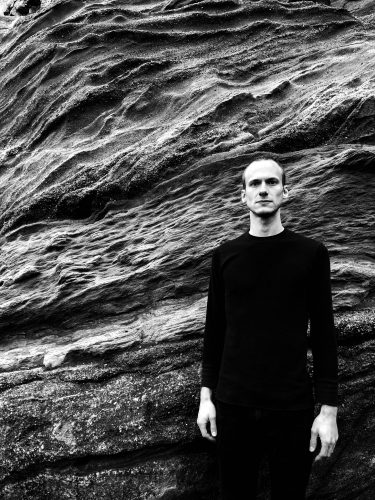 Cairn is certainly more optimistic. It is about moving forward in life, in all lucidity and truth, living each day in the present, in the face of the absurd nature of reality, defining your own meaning and enjoying your life. After eight years on this journey away from Christianity, I finally feel I have come to a place of understanding that has given me the tools to be free from that old narrative and all the suffering it’s caused me. This is not to say that I don’t still struggle, because I absolutely do. But I definitely feel a huge weight lifted. Whereas with Yodh this idea of how to live a meaningful, enjoyable life after faith has ended was hinted at near the end of the album, its predominant feeling was still one of dread. Cairn actually fully realizes the idea and appropriates it to show just how an individual might live on in truth and enjoyment, without god or faith.
Cairn is certainly more optimistic. It is about moving forward in life, in all lucidity and truth, living each day in the present, in the face of the absurd nature of reality, defining your own meaning and enjoying your life. After eight years on this journey away from Christianity, I finally feel I have come to a place of understanding that has given me the tools to be free from that old narrative and all the suffering it’s caused me. This is not to say that I don’t still struggle, because I absolutely do. But I definitely feel a huge weight lifted. Whereas with Yodh this idea of how to live a meaningful, enjoyable life after faith has ended was hinted at near the end of the album, its predominant feeling was still one of dread. Cairn actually fully realizes the idea and appropriates it to show just how an individual might live on in truth and enjoyment, without god or faith.
TheKenWord: Everyone has different ways of expressing/coping with their mental health concerns and exercising self-care (you with your music, for example), but a lot of folks struggle to overcome the fear of being ostracized for even acknowledging the existence of an issue. What advice, if any, would you give someone who is struggling to break free of that particular roadblock?
ALN: I will give my answer with the caveat that every person must be their own judge of what is right or wrong and good or bad for them as an individual in any given situation. I hesitate to give advice due to how different everyone’s personal circumstances are, but if a friend were asking me this question I would answer it in the following way. Firstly, it can be immensely helpful to have an outlet for your raw emotions. A creative outlet via art or even just a journal; allow yourself to feel the way you do, and put it somewhere (that isn’t ultimately destructive). This can make the emotions of the day-to-day feel less urgent and unbearable. But ultimately, talk about it.
There is definitely still a stigma around mental illness. I think part of it is due to our wanting to seem well, strong, and even perfect to others (and ourselves), not wanting to admit something is wrong. There is also another part evidenced by our history as a people in how we define and treat the mentally ill that suggests that these conditions, being in the mind (though strongly interrelated with physicality), are more mysterious in both cause and treatment and are therefore more frightening. And there still lingers the semblance of the idea of not wanting to be a “crazy” person. All that being said, I do think the culture is moving in the right direction. I doubt there’s a person alive today that can’t relate to an individual when they describe being depressed or anxious (two very common examples of mental illness, more and more recognized and accepted); at the very least, we as a people, thankfully gave up on insisting homosexuality was a mental illness (listed in the DSM until 1987). I think the more we talk about our struggles and mental health issues, the more awareness is brought to them, the more they are understood and empathized with, the more they are legitimized and respected, the more they are researched and treated, et al.
Revelations of truth need research and research needs data. We are the data. I touched on it earlier but I think most people have a baseline standard of not revealing their issues to people (as a protective instinct, naturally a good one) and it takes someone making themselves vulnerable to start the conversation. In my experience this usually opens others up to the possibility of having understanding and empathy which leads to positive changes. But no one wants to admit, for example, they don’t understand something or are struggling, so it often takes a certain kind of leap to break that ice. Unless a person can be honest with themselves and others about what they need help with, help may not come; it certainly won’t come as soon or directly. So in efforts of wellness, talk about it even just with your closest friend; talk about it with a therapist if you need to and are able. It can be frightening but I really do see the culture as moving away from the mental illness stigma and though we haven’t arrived at the other side yet, risking the backlash can prove immensely beneficial, not just for the individual but for everyone else as well.

TheKenWord: Have you any particularly memorable moments of support/pushback in response to your music?
ALN: Definitely. The public is going to like or dislike any work of art, especially one so extreme as my own. Those differences in opinion are all well and good. But I am most sensitive to how my family feels about my music. This is hard to talk about but being that I left my family’s religion and most of them are still religious, they have a hard time accepting the path I’ve chosen and the music I make. For a long time it was kind of one of those things that we just don’t really talk about, you know? A simple invite to a concert would eventually ripple out to tears over the destination of my soul (for them, obviously). Even approaching the subject became tense. It doesn’t really bother me that my folks aren’t able to fully appreciate the extreme music I make. They are in their sixties, I don’t expect them to start liking blast beats and growls all of sudden (there’s a generational gap that I accept without qualm). But it’s the fact that they feel pained over the theme and purpose of my music, that they can’t listen to it without getting upset or go to a show without crying that gets to me (this happened the one and only time they came to one of my metal shows; a Hell show actually, they’ve never seen Mizmor).
Mizmor has become a huge part of my identity. It helped me survive for eight years. It’s currently what I do for a living. And for the most part, we don’t talk about it. That hurts me because like every person, I want to be validated by my parents, I want them to feel proud of me. That is the underlying vibe, but recently I’ve noticed a small change. The release of Cairn has resulted in some mainstream press coverage and it got my folks’ attention. My mom reposted an article the Washington Post wrote about Mizmor’s concert in D.C. and also reposted a picture of me with my band explaining how we just got back from overseas and that she loved that particular photo of us. It’s the little things. Over the years they have made small efforts here and there to separate the art from the artist (in my interpretation) and allow themselves the ability to still feel proud of their son even if they totally disagree with the content of the art.
I still try not to bring up Mizmor, to talk more about common ground subjects and avoid the nerve. I do this because that particular conversation seems to be pretty moot between us. Neither one of us is going to convert the other; best to spare the pain at this point. It’s meant a lot to me to see them make efforts to support me here and there despite our differences. It’s still an area of tension between us and other members of the family but I think it’s hard not to feel at least a little pride and offer congratulations when mainstream sources, the kind they’ve heard of on their own, start recognizing the small achievement in the metal music world I’ve made with my art.
TheKenWord: On your darkest days, when you are at your lowest/most vulnerable, what kind of music (if any) do you turn to? What about when you are at your best?
ALN: In general, compared to what I’ve seen in others, I don’t consume all that much music. I am really sensitive to sound and often I would rather listen to my natural surroundings or appreciate the sound of silence than put music on. I am a firm believer in the brain’s inability to truly multitask and in this regard, I am not much of a background music listener (it’s just another layer of distraction in this way). When I actually want to listen to music, I intentionally listen and focus on it. I think this awareness of stimuli/distraction and my sensitivity to sound result in me listening to less music than you might expect from a musician. However, I obviously love music and when bands/albums that really resonate with me find me, I get really into them. It is often with emotional highs and lows that I do want to listen to and/or create music because music is intrinsically passionate.
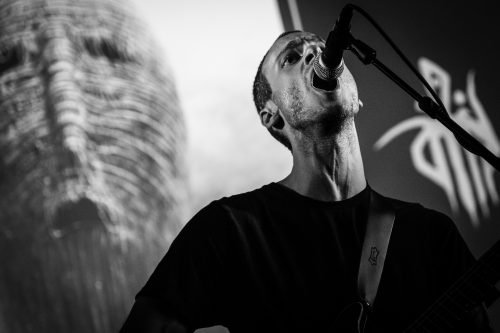
I mentioned earlier that I don’t much care for happy sounding music, so when I’m at my best, if I desire music at all, music creation might look like a simple jam on drums or guitar, without a specific goal, just improv and fun; music listening might look like something I have a positive association with already or something simple and light-hearted (ie: some favorite classical pieces or some old classic rock, some soul, something that’s familiar, fun to sing along to or harmonize with, or mimic the instrumentation of). When I’m at my lowest, music is more beneficial and more commonly sought than when I’m feeling good. If you have heard Mizmor, you know what music creation sounds like from this place for me. Music listening usually consists of songs strong in melancholic melody. Funeral doom metal and black metal are go-to’s. Mournful classical music is great too. I really get emotional catharsis from hearing the human voice also, so songs with a strong element of humanity strike a chord for me in this way. In addition to metal, throat singing and liturgical singing are great examples. I like ambient music too, it can be very soothing to my anxiety. If you want specific examples of artists and songs, I actually recently made a playlist for Evil Greed that is full of music that moves me. It’s called “Up to Date: A.L.N. (Mizmor)” on Evil Greed’s Spotify profile.
TheKenWord: Wow! Thanks so much for such incredibly detailed and thoughtful responses! I honestly can only think of one follow up question. It’s not even really a question. But I just thought it was interesting that your journey to atheism was wrought by a tragic decoupling of your faith from your heart. It’s interesting to me because I, to my best recollection, have always been atheist. Even as a kid I never found comfort in religion or God or worship of any kind, but rather discomfort on a deep instinctual level, a sense that it was all wrong for me. Not to say that such feelings are healthy either, but it’s just fascinating to me that we ended up with somewhat congruent beliefs from such wildly different experiences. I couldn’t imagine experiencing such a tumultuous, harrowing journey as it regards my beliefs and convictions.
I’m so sorry that your path in life was so drastically affected in that way, though. I also hope that you and your family continue to rebuild/repair/reconnect, hopefully to the point of mutual acceptance and respect. I’m glad that they have at least made some kinds of effort. It’s a small, but essential symbol of the love they have for you.
I guess I actually didn’t have any follow up questions. I just am so happy that you shared so much and put everything you could into these responses. It is clear to me that this subject is important yo you and that you treat it with immense respect and reverence. Your music is powerful in this regard as well, and I just want you to know that now that you’ve given me so much deeper insight into what went into your work, that it will resonate even more with me than before. I wish you the best!
Thanks again for your time, and if you wanted to add anything more feel free!
ALN: Thank you for your words. I find it fascinating too, that we arrived at the same conclusion from such different starting points. I think it speaks to the truth of that conclusion. Doesn’t matter your upbringing, the facts are still the facts. And I appreciate your sympathies, thanks.
Thanks for doing this. It’s an important conversation.
I would like to thank ALN once more for taking the time out of his full schedule to participate in these interviews. It felt great to be open and honest about what role mental health, mental illness, and just living in this bonkers world that surrounds us day to day plays in the making and appreciation of metal music. And if you haven’t checked out Mizmor’s discography yet, I highly recommend you do so now. You might find that his work hits just a little harder and feels just that much more sincere with a better understanding of what each installment represents. A final note: If you are experiencing something in life that you don’t understand or that is simply kicking your ass, tell someone. Open up when that drive to do something, anything, to survive takes hold. Take that moment seriously, because it might just save your life. And if you happen to be the one someone opens up to, take it just as seriously. Listen to them and let them lead. It makes all the difference in the world.
